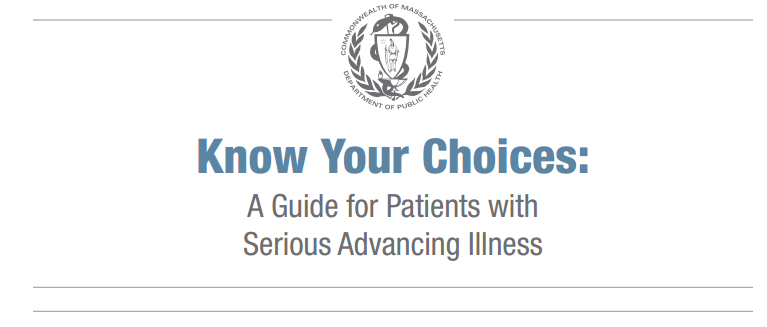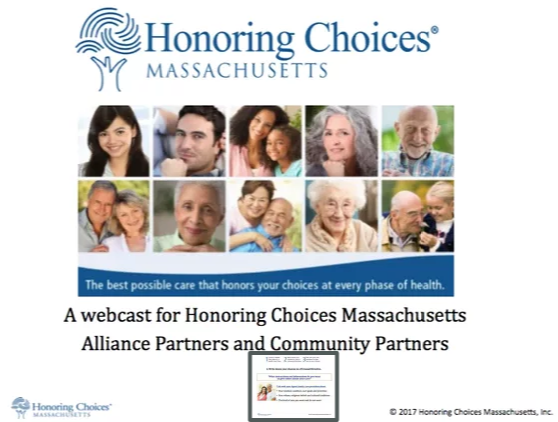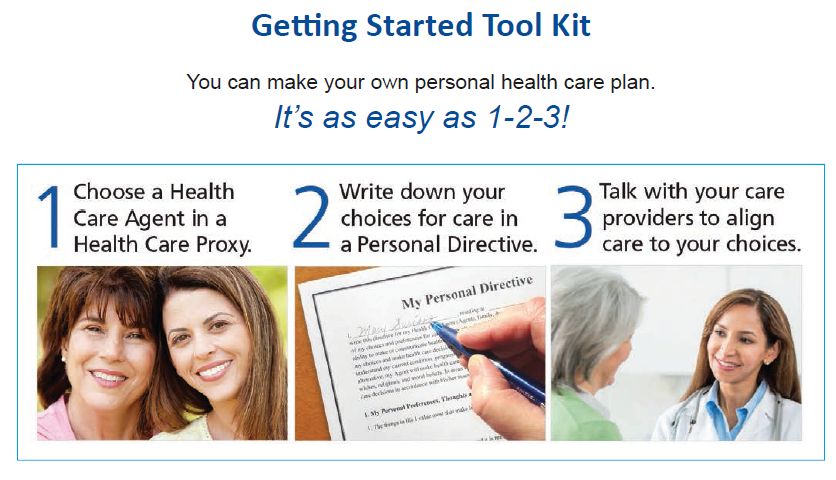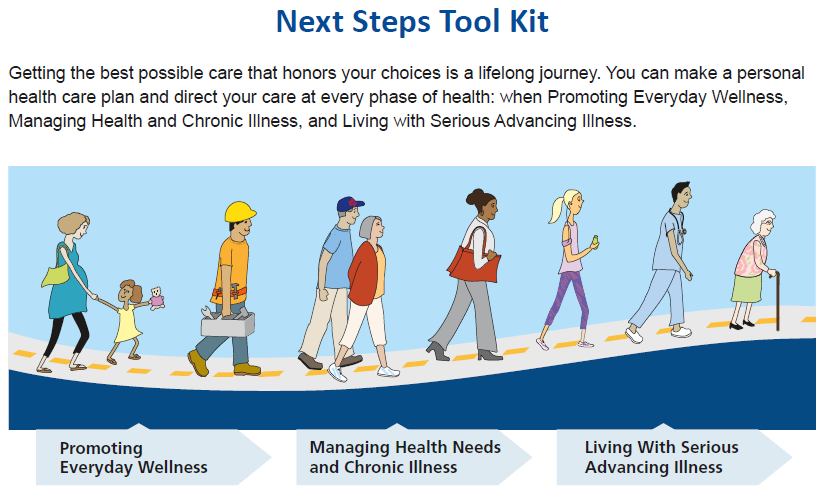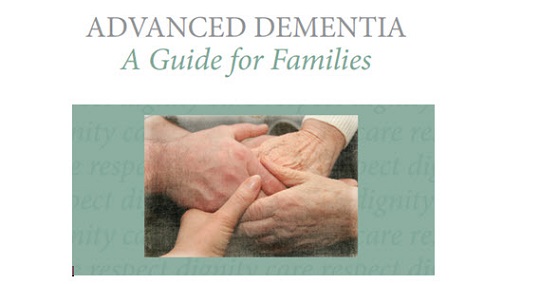Good healthcare depends not only on the skill of the caregivers who treat you and the quality of the facilities you visit but, most importantly, on you.
Aside from trying to keep fit and healthy, you can influence your health by informing your family and team of caregivers about your goals, values, and wishes relating to your care.
It is important to choose care that is right for you and to make those wishes known throughout your entire life – not just when you are seriously ill.
While there are many resources available to assist you in making your plans known, the process nonetheless can be confusing. On this page, we’ll help you learn about such seemingly conflicting terms such as:
A glossary of Terms and Definitions can be located here...

A Simple Step: Designating a Healthcare Agent and Completing a Healthcare Proxy (WEBINAR)
Join MHA and Honoring Choices Massachusetts as we outline how you can take the first important step to designate a healthcare agent and complete a healthcare proxy. »Full Article
Know Your Choices: A Guide for Patients with Serious Advancing Illness
A good place to start and a resource from which much on this page is taken.
Advance Care Planning is about taking steps to make sure you get the medical care you would want if you were too sick or hurt to express your wishes. Advance directives are legal documents that allow you to spell out your preferences about end-of-life care ahead of time.
Health Care Proxy is the legally accepted form of advance directive. In it, you name a trusted person – known as a Health Care Agent – to make future healthcare decisions on your behalf if you are ever unable to make or communicate those decisions.
Palliative Care can often help patients with serious, life-threatening diseases live better and even longer. It focuses on providing relief from the symptoms and stress of a serious illness, improving the quality of life for both the patient and the family. Palliative care is provided by a specially trained team of doctors, nurses, social workers and other specialists. It is appropriate at any age and at any stage in a serious illness and can be provided along with curative treatment.
End-of-life Care is often defined by the medical community as care that occurs in the last month’s a person’s life. It helps those with advanced, progressive, incurable illness to live as well as possible until they die. It includes management of pain and other symptoms and provision of psychological, social, spiritual, and practical support through the last phases of life into bereavement.
Hospice Care is a philosophy of end-of-life care that looks at the whole person. Hospice provides an array of comfort and support services to patients and their loved ones. This is usually when a serious illness is no longer responding to treatments focused on a cure. Hospice treatments do not aim to lengthen life. Instead, they focus on ensuring comfort and dignity so that the final months of a patient’s life are as meaningful and fulfilling as possible, for both the patient and family.
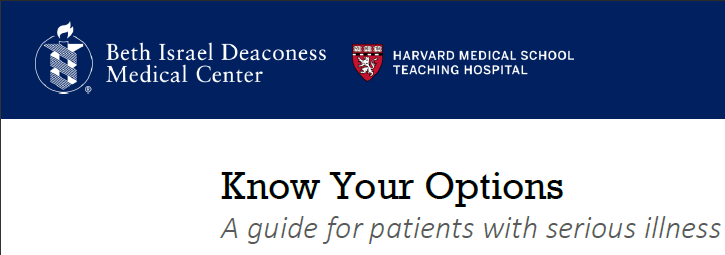 Know Your Options -- A Guide for Patients with Serious Illness
Know Your Options -- A Guide for Patients with Serious Illness
This brochure is available to all patients. Not every patient has a serious illness, but we make it available to everyone so that patients who are seriously ill will be aware of their full range of options. If you have a serious illness, it is important that you understand the types of care available to you. This may include primary, specialty, palliative, and hospice care. It is also important that your health care providers know what matters most to you and how you feel about possible treatments.
In this packet you will find information about different types of care that may be right for you.
Honoring Choices MA Webcast for Alliance Partners & Community Partners
Learn about our health care planning model, review the Who's Your Agent? Program's Tools Kits and strategies to engage adults and families in planning discussions, and meet your fellow Partners.
Honoring Choices - Tool Kits Getting Started and Next Steps in Planning Your Care
Getting Started Tool Kit
This step-by-step tool kit provides Massachusetts-based health care planning information, documents, and discussion guides to start to make a personal plan and put your plan into action.
Next Steps Tool Kit
Getting the best possible care that honors your choices is a lifelong journey. You can make a personal health care plan and direct your care at every phase of health: when Promoting Everyday Wellness, Managing Health and Chronic Illness, and Living with Serious Advancing Illness. This step-by-step kit builds on your planning discussions and adds/updates planning documents all through your lifetime. You’ll find information, tools, and discussions guides to build your plan and put your plan into action.
Those confronting serious care decisions will often be confronted with the need to fill out binding legal documents that express their wishes. The resources below explain the specific steps you can take to ensure your wishes are understood and followed.
Honoring Choices Massachusetts
Every adult, 18 years and old, or their Health Care Agent and Guardian, has the right to be fully informed about their healthcare to make choices for care that reflect an individual’s values, goals and priorities. Honoring Choices Massachusetts provides no-cost Massachusetts-based health are planning information, the “5 Massachusetts planning documents”, and discussion guides to help consumers and care providers have effective discussions at every phase of health. Adults and families can get started with a ‘do-it-yourself’ 3-step planning guide to create their own personal healthcare plan.
The Conversation Project
The Conversation Project is dedicated to helping people talk about their wishes for end-of-life care. As the initiative states on its website: “It’s time to transform our culture so we shift from not talking about dying to talking about it. It’s time to share the way we want to live at the end of our lives. And it’s time to communicate about the kind of care we want and don’t want for ourselves. We believe that the place for this to begin is at the kitchen table—not in the intensive care unit—with the people we love, before it’s too late.”

MOLST
Massachusetts Medical Orders for Life-Sustaining Treatment (MOLST) is a standardized medical order form for use by clinicians caring for patients with serious advancing illnesses. It relays instructions between health professionals about a patient's care. MOLST is based on an individual's right to accept or refuse medical treatment, including treatments that might extend life. MOLST is very different from a healthcare proxy form, which is a legal document that transmits your wishes after you have lost capacity. A MOLST form, on the other hand, is a medical document signed by both the clinician and the patient, and is effective as soon as it is signed, regardless of a patient’s capacity to make decisions.
Advanced Dementia A Guide for Families
The purpose of this guide is to provide information to the family members and individuals responsible for making health care decisions for patients with advanced dementia. The guide is organized into 10 sections. The topics and contents for these sections were developed by health care professionals, including geriatricians, nurses, palliative care specialists, and medical researchers, based on their clinical experience and the latest research in the field of advanced dementia. Family members of patients with advanced dementia have also contributed to the guide in order to reflect their viewpoints and concerns.
The guide covers issues that most commonly confront decision-makers caring for patients with advanced dementia. The guide is meant to serve as a resource to provide support when sensitive and challenging decisions must be made. The information is intended to complement and encourage, but not replace, counseling by the patients’ direct health-care providers. A section has been provided at the end of the guide for notes and questions that a health-care provider and support team can answer.
Other Resources
Under the state’s reform law, Massachusetts formed the Massachusetts Expert Panel on End-of-Life Care that in 2010 produced this comprehensive report: Patient-Centered Care and Human Mortality: The Urgency of Health System Reforms to Ensure Respect for Patient’ Wishes and Accountability for Excellence in Care.
Since the state report, the care giving community in Massachusetts has redoubled its effort to be respectful of the wishes of patients facing serious illness and to improve care for them.
The healthcare community in Massachusetts – defined by its thoughtful, high-quality care to patients across the continuum – is redoubling its effort to be respectful of the wishes of those facing serious illness.
A variety of resources exist to inform caregivers of the current thinking about serious illness care, to allow them to share best practices, and to guide patients and their families during the most trying of times.

A Simple Step: A Call for Long-Term Healthcare Planning
A coalition of leading organizations is coming together to promote proactive care decision-making by calling on patients to designate a healthcare agent.
»Full Article
A Simple Step: Designating a Healthcare Agent and Completing a Healthcare Proxy (WEBINAR)
Join MHA and Honoring Choices Massachusetts as we outline how you can take the first important step to designate a healthcare agent and complete a healthcare proxy.
»Full Article
How Community Members Can Help A Stressed System
As healthcare organizations and caregivers navigate another challenging winter, the Massachusetts Health & Hospital Association is sharing these basic measures that community members can take to help support the system
»Full Article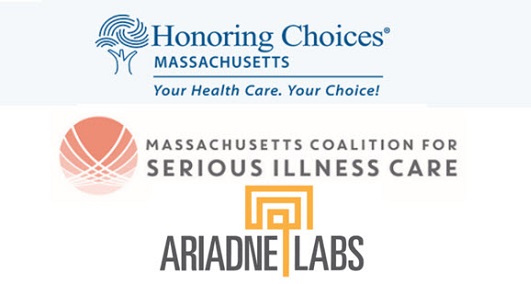
Massachusetts e-MOLST Web Portal
New VIDEO. Introduction to MA e-MOLST Web Portal for Honoring Choices Partners. Share with your clinicians and care teams. Tools & Resources to Use the Portal Start Proactive Planning Conversations & Document Care Choices The MA e-MOLST Web Portal offers health care providers and seriously ill, high-risk, and frail adults an effective communication approach to engage in proactive ...» Full Article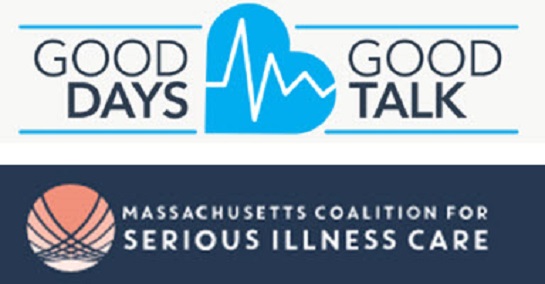
MA Coalition for Serious Illness Care – Good Talk Campaign
Based on the Coalition’s public messaging research, we have developed the Good Talk Toolkit to be a resource that supplements your organization’s capacity to build awareness and understanding for advance care planning. The messaging and campaign included here are intended to shift the frame of advance care planning away from end of life and life-sustaining treatment choices towards goals of c...» Full Article
What is Palliative Care?”
Webinar Recording (Time: 5 minutes) - For Everyone: Learn why Palliative Care is an added layer of support for individuals with serious illness- at any age, any serious illness, and any phase of health. ...» Full Article
For Consumers: “Palliative Care: Aligning the Team Around the Patient”
Webinar Recording (Time: 30 minutes) - For Consumers, Patients, Families and Caregivers can explore Palliative Care and learn key questions to start a discussion with your care providers. Elizabeth J.Collins, MD, Palliative Care Medical Director, Lahey Hospital & Medical Center, provides a framework of the 5 stages of serious illness and how palliative care can be effective at each stage and...» Full Article
Palliative Care Discussion Guide: 5 Things to Talk About with Your Care Providers
This is a Basic Discussion Guide to help you start a planning discussion to promote lifelong wellness and receive person-centered care. Start with one or more questions that make sense to you, and write down your own questions below to bring to your next appointment. I’d like to understand more about my health or illness and treatment optionsI want to discuss my goals and explore the care I ...» Full Article
Palliative Care for Consumers – Fact Sheet
Palliative Care is specialized health care for individuals diagnosed with a serious illness to manage the pain, symptoms and stress of living with a serious illness. A Palliative Care clinician or a team of care providers, offer an “extra layer of support” in addition to your regular medical care. They can provide emotional and spiritual support for you and your family. Palliative care impr...» Full Article
Honoring Choices “Everyone, Everyday” Initiative
Make a plan for quality care today & everyday. The "Everyone, Everyday" initiative reaches out to all adults to make a personal health care plan within their own language, culture and ability, and receive the best possible care today and everyday, starting at 18 years old and continuing all through their lifetime. Make Your Plan. Then, Help Move it Forward! You can start to make your own p...» Full Article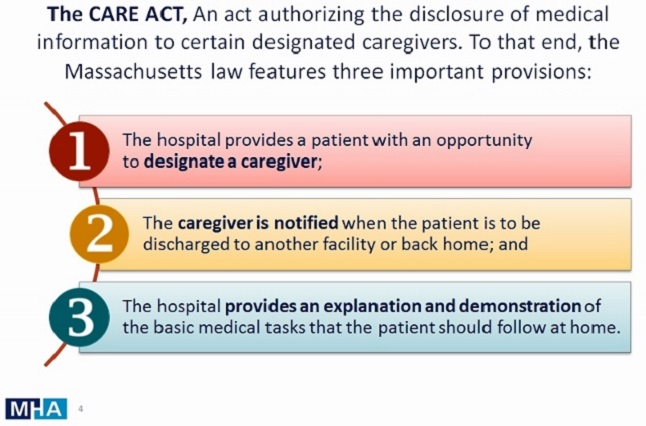
MHA’s CARE Act Guidance – Updated Materials
The Caregiver Advise, Record & Enable (CARE) Act (Chapter 332 of the Acts of 2016), effective November 8, is intended to allow patients over the age of 18, who have been admitted as an inpatient at an acute care hospital, to designate a caregiver and give permission for the hospital to provide medical information to that caregiver. Materials, Fact Sheet and FAQs can be found here... &nbs...» Full ArticleTranslate »

